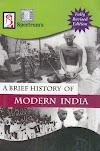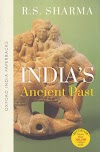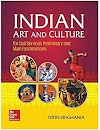Preamble
"Socialism is not only a way of life but a certain scientific approach to social and economic problems"
Jawahar Lal Nehru
Preamble is regarded as introduction or prelude of the Constitution. It is the essence or summary of the whole constitution. Preamble declare the basic values on which the constitution is made.
D.D. Basu says that the Preamble contains the philosophy or the theme of the constitution. It contains the key to unravel the minds of the constitution makers and bring out the intentions that they had while writing various provisions of the constitution.
It is customary but not compulsory for a constitution to have a Preamble. Unwritten constitution doesn't have a Preamble where as written constitution may or may not have a Preamble. For example - Government of India Act 1935 didn't have any Preamble.
Preamble is in the form of a declaration which neither confers substantive power to the organs of the government nor it limits their power.
Preamble reveals 4 components -
- Source of authority - People
- Nature of Indian state - Sovereign, Socialist, Secular, Democratic and Republic
- Objective - Equality, Justice, Liberty and Fraternity
- Date of adoption - November 26, 1949
Preamble can't overwrite any provision of the constitution, i.e., Preamble is subordinate to the constitution and if there is a clash between an Article of the constitution and the Preamble, the the former shall prevail over the latter.
As per Supreme Court, if there is an ambiguity surrounding any particular provisions of the constitution, then that interpretation of the constitutional provision shall be taken which tallied with the Preamble. However, some experts believed that Preamble is just an ornamental or decorative part of the constitution, since it is not legally enforceable and also it doesn't give any power to any organ of the state nor it limits those powers.
Preamble also declares that the sources of all the powers of the constitution arises from 'The People of India', i.e., in India constitution is sovereign but people are the ultimate sovereign, since government derives its powers from the constitution and the constitution derives its powers from the people of this country.
- Kehar Singh vs Union of India case - 1989 -
In Kehar Singh vs Union of India case, the statement that the constitution derives its powers from the people was challenged. However, Supreme Court holds that this statement is a legal fiction but a conclusive assumption which can't be tested in any court of law and thus shouldn't be challenged also.
Preamble contains the enacting clause where it declares when the constitution was enacted and adopted, i.e., on November 26, 1949.
Is Preamble a part of the constitution?
Traditionally, it was believed that the Preamble was not part of the constitution because even if the Preamble is removed, CoI will keep functioning well. Also, unlike constitution it doesn't give powers not it limits the powers of the government. Thus, in Berubari Case 1960, Supreme Court held that the Preamble is not a part of the Constitution.
But Supreme Court in Berubari Case, also held that for any terms having more meaning, some assistance at interpretation may be taken from objectives enshrined in the Preamble.
- Keshvanand Bharti Case 1973 -
However, Supreme Court in Keshvanand Bharti case overruled its earlier decision and declared that the Preamble is indeed an integral part of the Indian constitution. And as the Preamble is a part of the constitution, it can be amended suitably under Article 368.
Reason for Judgement - Only when it is believed that, it is a part of the constitution, Preamble can be amended to keep pace with the modern days constitutions and socitical philosophies, i.e., to keep a match with the changing time.
Amendments in the Preamble - It has been amended only once so far in 1976 by 42nd constitutional amendment act which added three new words -
- Socialist
- Secular
- Integrity
Preamble contains the aspirations and the ideals of the people of India.
- Aspirations - Liberty, Equality, Justice, Fraternity
- Ideals - Sovereign, Socialist, Secular, Democratic, Republic
Ideals of the Preamble
Sovereignty - (Free to take decisions without any pressure or influence of others) - Sovereignty means country's dormant is totally independent in its own decision making, keeping in mind the interests of the country and the values of the constitution and doesn't acknowledge any power as supreme with respect to its governance either within the boundary or internationally.
However, in the era of LPG, no state is considered fully sovereign since membership of international organisations like United Nation (UN), European Union (EU); international treaties and accords etc put restrains or limits on decision making of the country and to some extent erode the sovereignty of the nation.
Even within time, civil societies, groups are becoming stronger and they put pressure on the government to fulfill their demand.
But even in the era of LPG, India is still fully sovereign since India takes decision keeping in mind the interests of the country and large values of the constitution and where ever India has shown flexibility in its decisions or a change in stands, it is not because of any undue pressure rather despite a better bargain in the interest of the country and when ever India has to put his foot down, India does so, thus proving its sovereignty.
Secularism - (not declaring any religion as the official religion of the state) - Secularism means that state shall not recognise any specific religion as its official religion, i.e., state is neither religious nor irreligious or anti-religious but non-religious in nature as in case of India. As per the understanding of Indian secularism, all the religions that had made India their home have the right to co-exist and thrive on the soil of India.
The way secularism is practiced in the west and in India, there exist a difference that in the west, state has made distant itself equally from all the religions where as in India, state is equally close and appreciated all the religions. In the west there is a separation between the state and the church (religion), i.e., in the west administrative decisions are not taken with primary consideration of religion where as in India, state and religion are not that separate since Indian state takes decisions keeping in the aspirations and expectations of all the religions equally.
Socialism (Equal distribution of resources and no one should be left out and no one should hold excess)
Russia - Marxist socialism - Making everybody economically at the same level --- Complete nationalisation
State control every resources & distributed it equally (disadvantage - doesn't get motivated for doing better)
India - Democratic/Fabian Socialism -- Mixed economy (every body gets and no body should be left out and if possible distribution will be equal)
Socialism - Socialism is a philosophy which wants to achieve a scenario where every member of the society can get or take benefits of the resources of the society, i.e., nobody is completely left out from enjoying the benefits of the resources.
However, the path of socialism we followed in India is a bit different from the Marxist socialism path followed in erstwhile Russia which involve complete nationalisation. The root of socialism which India took is Democratic/Fabian socialism (Fabian Socialism - Principle of democratic socialism via gradualist and reformist efforts rather than by revolutionary overthrow) in which we didn't go for complete nationalisation or making the state the owner of each and every resources of the society and controlling every mode of production rather we took the path of mixed economy along with rules like progressive taxation, land ceiling, Zamindari abolition and state sponsored schemes like PDS, state run shelters, etc. So that no body be left out from taking the advantages of production output or taking benefits of the resources of the nation as well as it avoided the undemocratic means of complete nationalisation.
Democracy (Rule of the people) - Democracy is a political system where people are in command or it is a rule by people either directly they take decision (as in case of direct democracy) or indirectly by choosing their representative who on behalf takes decision (Indirect democracy)
India follows a model of Indirect democracy or Representative democracy for the reason of big population race and the decisions made are themselves very complex. However, if people bring wrong representative to power it can be a very big threat to the democracy since he will not reflect the true aspiration of the people. Wrong representatives are picked for the reason that much of the voters are illiterate having very less knowledge about the background or the fact or the credibility of the candidate or the party. Also, many voters are divided on parochial grounds, i.e., they vote only for the narrow consideration of religion, race, caste, language, region, etc without objectively analysing the credibility of the candidate. Poverty also forces people to vote not for the right candidates. In the urban areas the low voters turnout is also a threat to democracy beside paid media which present the wrong candidate in a good light and distort the fact deliberately. Absence of strong tools of accountability like right to recall or negative vote system also weakens democracy. Representatives not interacting with the voters frequently and not reading their minds also weakens democracy since people's voice is lost in it.
Number of electoral reforms and administrative reforms as well as responsible media and judiciary strengthen democracy.
Republic (Head is chosen by the people) - A system is republic where people are supreme, there is no hereditary ruler, i.e., even the head of the state is elected by the people.
Aspirations of the People
Justice (Social, Political & Economic) - Preamble talks about comprehensive justice promised by the constitution, i.e., political, social and economical justice.
- Political justice - Article 326 (Right to vote)
- Social justice - Article 14-18 (Right to equality) & DPSPs
- Economic justice - DPSPs and Right to work (Article - 21)
Liberty (no arbitrary power to restrict) - Liberty is the absence of arbitrary power exercised by an individual or a group or an institution over another individual, group or institution.
Equality (in opportunity and status) - Preamble talks about equality of opportunity and status.
Fraternity (brotherhood) - It is a sense of brotherhood among all the people of India. It is a feeling which is very essential to promote unity and integrity of India.
PYQ
In the context of polity, which one of the following would be the most appropriate definition of liberty?
a) Protection against tyranny of political ruler
b) Absence of restrain
c) opportunity to do whatever one likes
d) Opportunity to develop oneself fully
Ans - d
Explanation - Initially, liberty was defined in negative sense, i.e., absence of restrain but now it is defined in positive sense, i.e., opportunity to develop oneself fully.
Note
Indian liberalism is different from classical or western liberalism. Classical
liberalism is more concerned with individual freedom. While in India, an individual identifies himself
with the community to which he/she belongs. So Indian liberalism gives primacy to the rights of the
individuals over the demands of social justice and community values.
Notes on other subjects
Optional Notes
Note - This is my Vision IAS Notes (Vision IAS Class Notes) and Ashutosh Pandey Sir's Public Administration Class notes. I've also added some of the information on my own.
Hope! It will help you to achieve your dream of getting selected in Civil Services Examination 👍





0 Comments